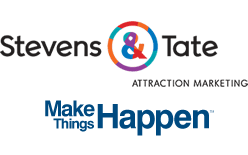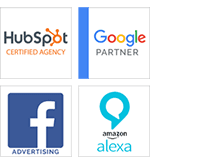
5 SMART Goal Example For Business Development
A SMART goal is basically what the acronyms from the name suggest. It is specific, measurable, attainable, and relevant and time bound. The Smart Goal process provides a frame where you can create a long term goal. It also provides a time limit for you to work on the same goal. By doing this business’ are 70% more successful in achieving their goals thanks to regular check-ins, updates and group accountability. Below are a few smart goals examples for business development that will help you understand the system better and enhance your business.
Smart Goal Examples for Business
- “I Want To Increase My Profits”
- “I Want To Improve My Response Time to Customer Complaints”
- “I Want To Improve My Employee Retention”
- “I Want To Be More Efficient In My Business Operations”
- “I Want To Grow My Business Operation”
“I Want To Increase My Profits”

Specific: I will increase revenue while cutting down on expenditure. Moving to a more affordable premise that will cut my rent by 7% will reduce the operational costs.
Measurable: I will increase sales over the next 3 months by signing in 5 more potential clients.
Attainable: I will improve my current customer relationships and promote the business through referrals, networking and through social networks. This will help me find more leads and therefore see to an increase in revenue for the business.
Relevant: moving to a cheaper establishment will reduce the operational cost of my business and therefore give room to the growth of profits.
Time-bound: I will have increased my profit by the end of the coming three months.
Also Read: Maximizing Profitability: How to Calculate and Improve Customer Lifetime Value
“I Want To Improve My Response Time to Customer Complaints”

Specific: I will improve the response time to customer complaints by increasing my customer service staff from 3 to 8 in the next one year.
Measurable: the increase in customer service staff is scheduled to take place within one year. It should bring the number to a total of 8.
Attainable: as I plan on moving to a new establishment I will ensure the place has enough room to accommodate the additional staff members I intend to have in the next one year.
Relevant: I will find ways to manage the complaints meanwhile in order to maintain the customer base I have and strive to grow the client base even further to match the additional customer service staff.
Time-bound: I will have hired the customer service staff by the end of one year.
“I Want To Improve My Employee Retention”

Specific: I will improve the employee turnover by 15% in 90 days by putting up training for the new employees to let them know what is expected of them and have a program for them to get used to the operation systems. I will also have one-on-one meetings with employees so that I get to know what challenges they could be facing.
Measurable: the improvement in employee turnover is scheduled to be by about 15% and should take place within 90 days.
Attainable: trainings and one-on-one meetings will ensure the employees are prepared for what is expected of them when they get into production. It also give me a hint of what’s on their mind concerning general operations of the business.
Relevant: outstanding employees will be put up for a reward system. For the ones that might be having a difficult time, there will be motivation trainings for encouragement.
Time-bound: employee turnover will have improved within 90 days
“I Want To Be More Efficient In My Business Operations”

Specific: I will improve my efficiency in business operations by challenging my sales department to increase their closing ratio from its current 45% to at least 60%. They could also work on improving the delivery time from 72hours to at least 12hours maximum.
Measurable: the sales people are supposed to increase their closing ratio from 45% to 60% and the delivery time improved to 12 hours from the initial 72hours
Attainable: I will conduct a survey to find out what both the clients and the sales team think about the idea. I will implement it as soon as the idea passes as valid.
Relevant: increasing the number of motorbikes and pickups that will do courier services for us will help make the plan a success
Time-bound: this should happen in one year.
“I Want To Grow My Business Operation”

Specific: open three more branches countrywide within five years
Measurable: the objective is to increase operations and revenue for the business. This will, in turn, facilitate the growth to three more branches.
Attainable: increasing my current selling space by 25% will mean more production. This can help me save for the planned growth to 4 branches countrywide.
Relevant: increasing production, operations and revenue will mean a larger client base thus the need for more branches will not be a wasteful idea after all.
Time-bound: establishing the branches should be within the next five years.
Learn More About: How Smart Goals Should Align With Your Business Goals
As much as an organization will work to ensure that its business goals are smart, they will never be flawless. It is, however, essential to ensure they give their teams tasks within their capability and make decisions using accurate data from their past operations while setting new smart business goals. The rest will work out just fine.

Dan Gartlan helps companies of all kinds drive their business initiatives and achieve their goals with strategic marketing programs that deliver results. As President of Stevens & Tate Marketing, he has over 20 years experience across various industries, and continues to share his expertise to build brands nationwide.





